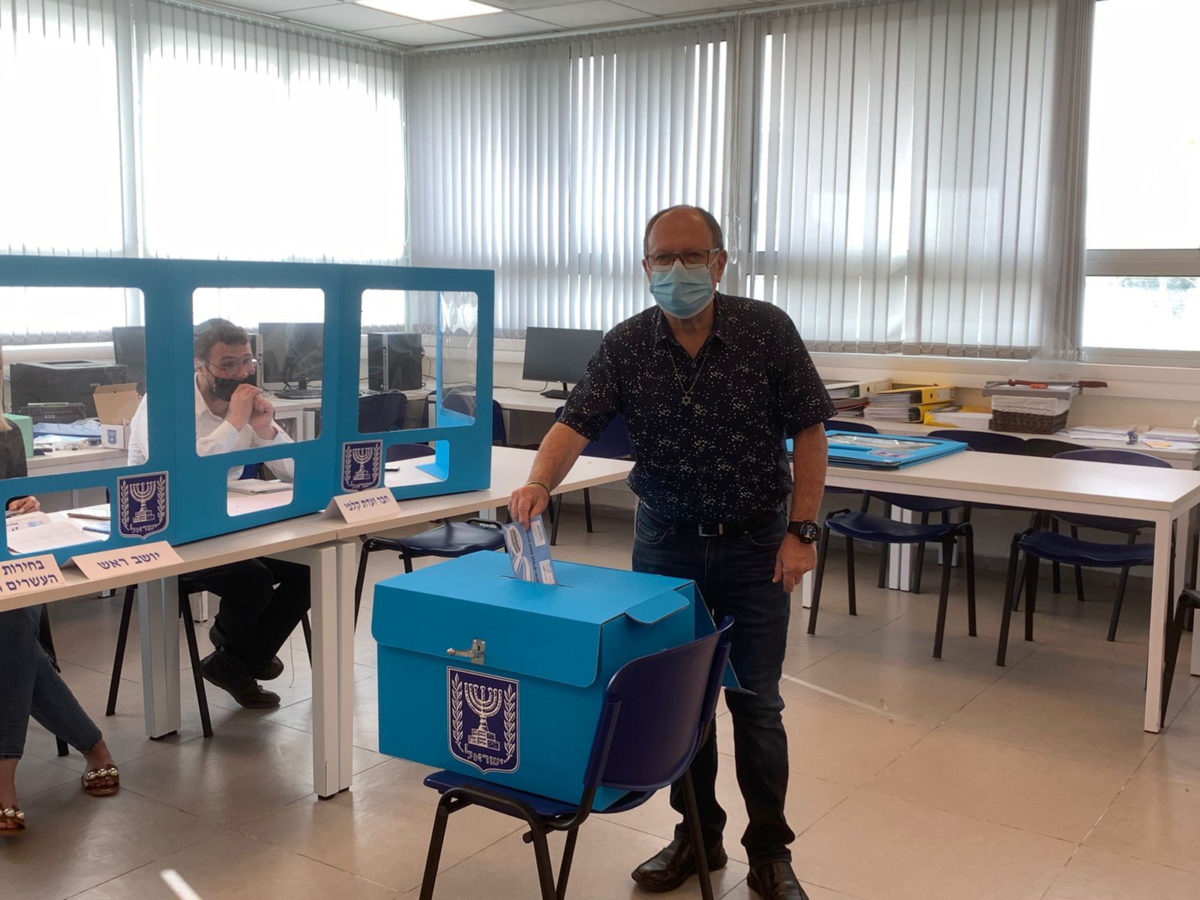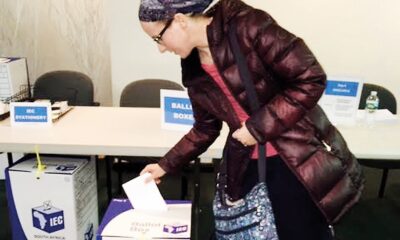
Israel

Bibi or not Bibi – is there even a question?
Published
3 years agoon
By
Paula Slier“Citizens of Israel – thank you!” wrote Israeli Prime Minister Benjamin Netanyahu in Hebrew on Twitter shortly after Israeli polls closed on Tuesday night, 23 March.
A few hours later, a delighted crowd welcomed him at his Likud party headquarters in Jerusalem. “Bibi, Bibi!” they shouted, filling a large hall with balloons, banners, and Likud COVID-19 masks.
But the excitement might be misplaced and premature at best.
As the hours ticked into Wednesday morning, the exit polls started changing their initial predictions. Only on Friday afternoon will the final tally be known.
What won’t alter is the fact that the prime minister’s Likud party won the most parliament seats by a large margin. President Reuven Rivlin will therefore task him first with forming a government. But then it gets tricky.
At the time of writing (at midday on Wednesday) exit polls predicted Netanyahu’s right-wing bloc fell short of the 61 seats it needed to secure a majority coalition. The kingmaker could well be the prime minister’s former ally and defence minister, Naftali Bennett. His Yamina (Rightwards) party won at least seven seats, and although Bennett avoided explicitly declaring who he would support, it’s widely expected he’ll join Netanyahu. In return, he’ll exact a high price in terms of ministerial positions and other powerful appointments.
This would bring Netanyahu closer than ever to a narrow government that would include the most extreme elements of Israeli society. Exit polls showed the Religious Zionist Party, that includes far-right and homophobic elements with roots in the overtly racist Kahanist party, receiving enough votes to enter parliament.
Yohanan Plesner, the president of the Israel Democracy Institute, warned that such a coalition could back Netanyahu’s attempts to find a political solution to his legal troubles. “In this case, it will be imperative that elected leaders from across the political spectrum, civil society organisations, and all those who advocate on behalf of a vibrant Israeli democracy, make it emphatically clear that the results of this election don’t constitute a license to promote radical proposals aimed at eroding the legal system and curtailing the rule of law. The health and vitality of Israel’s democratic system could hang in the balance,” he said.
Meanwhile opposition leader Yair Lapid of Yesh Atid (There Is a Future), said he, too, would try to build a coalition to “create a sane government for Israel”.
Speaking early on Wednesday morning, he declared, “At the moment, Netanyahu doesn’t have 61 seats but the change bloc does. We’ll wait for the final results but as it stands, there won’t be a government based on the votes of the racists and homophobes.”
The anti-Netanyahu bloc is far from a homogenous group, consisting of left, right, and centrist factions. They have fewer options in forming a coalition than Netanyahu. Should neither side succeed, it will be back to the polls for Israelis – the fifth election in two years.
Which in part explains why Tuesday’s turnout was the lowest since 2013. Voter fatigue and apathy are starting to sour even the most ardent supporters of Israeli democracy.
The lack of enthusiasm was most noticeable in the Arab community. Many residents confessed they had lost confidence in their representatives and the two main Arab blocs – the Joint List and the breakaway United Arab List (Ra’am), headed by Mansour Abbas – warned of a “disaster” due to the low turnout.
In the 2015 election, the Joint List became the third-largest party in parliament after it won 13 seats. In the 2020 election, it increased to 15, remaining the third-largest party until Yesh Atid split off from Blue and White to lead the opposition.
Earlier this year, Abbas quit the Joint List, indicating his willingness to join a coalition headed by Netanyahu. And the prime minister welcomed him. Whereas in the past Netanyahu “incited” against the Arabs, this time around, he changed his strategy and appealed to Arab-Israelis to vote for him.
He paid rare visits earlier this year to Arab cities in the north of the country purportedly to encourage citizens to get coronavirus vaccinations, but many were suspicious that he was taking advantage of the rift within the alliance of Arab parties.
Netanyahu appeals to some Arab voters because they believe he can make things happen. He’s also promised to focus on the growing violence and crime in the Arab community, economic issues, and the recent normalisation of Israel’s relations with several Arab countries.
As in the previous three rounds, this election was largely seen as a referendum on the tenure of Netanyahu. Personality politics has so overtaken the race that there has been almost no mention of the Palestinians after years of frozen peace talks.
The day before the vote, Palestinian Prime Minister Mohammad Shtayyeh described the election as an “internal” matter for Israelis, but decried the effect on Palestinians living under Israeli occupation.
Netanyahu used these elections to once again portray himself as a global statesman uniquely qualified to lead Israel through its many security and diplomatic challenges.
But unlike the previous election held last March, he didn’t have the support of former American President Donald Trump smiling alongside him in campaign posters. Instead, Netanyahu made Israel’s coronavirus-vaccination campaign the centrepiece of his re-election bid, repeatedly stressing that he was personally responsible for Israel’s impressively fast rollout.
Only a few short months ago, it seemed that COVID-19 would kill his chances of winning another election, and his critics still accuse him of bungling the management of the pandemic for most of the past year. But most Israelis appreciate his efforts.
This was the first election held in the throes of the pandemic, and five thousand additional polling stations were set up to deal with the situation. Workers in hazmat suits collected ballots in hospital wards while buses were parked outside some polling stations to serve as remote ballot drops for coronavirus-positive or quarantined voters.
As things stand now, it’s unclear if four rounds of elections have resolved the longest political crisis in Israel’s history. The country remains as divided as it has been over the past two years.










